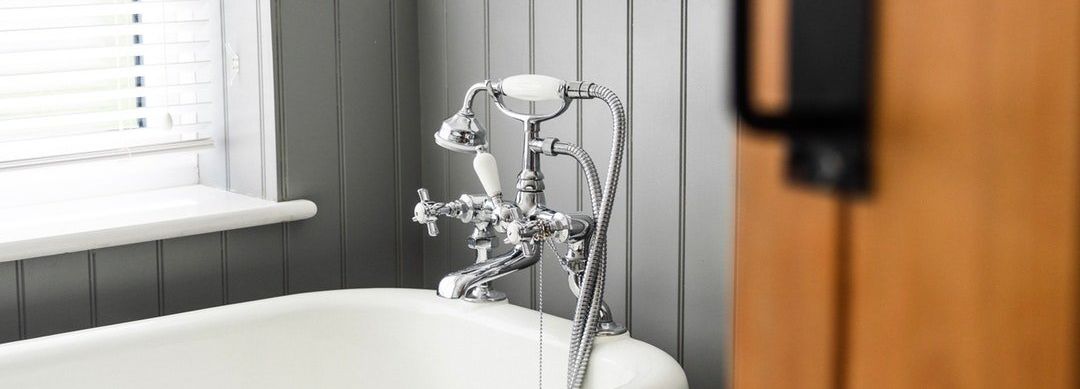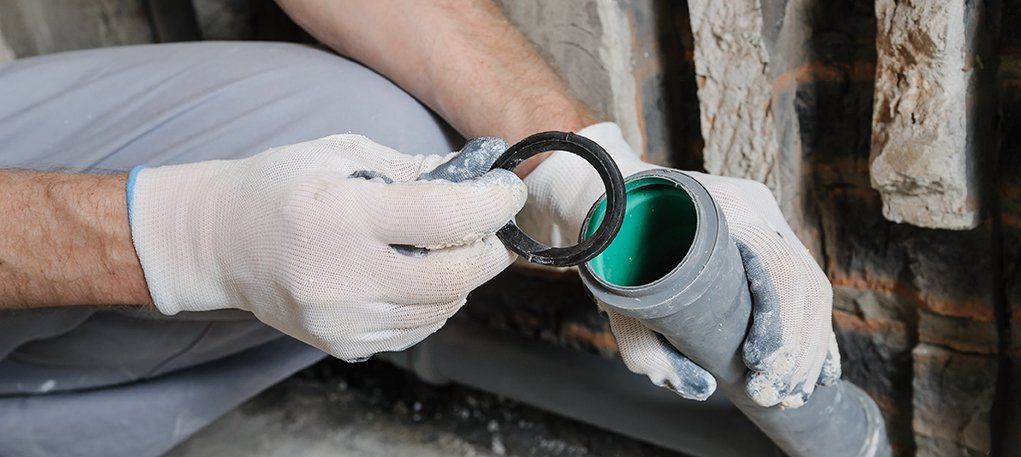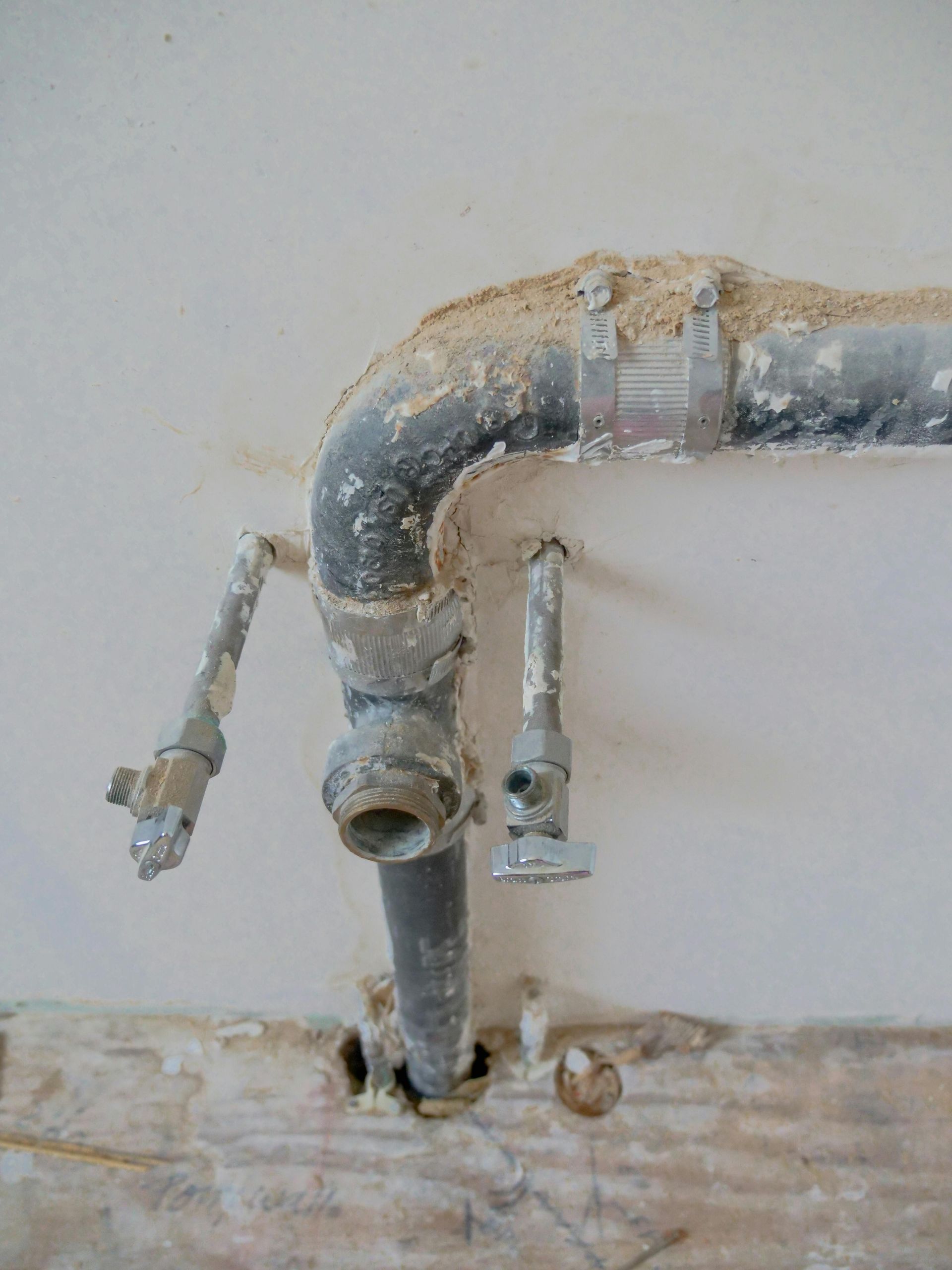

Introduction
Shower fixtures are an essential component of any bathroom, providing us with the convenience and luxury of a refreshing shower. From faucets and showerheads to handles and valves, these fixtures play a crucial role in controlling water flow and temperature. However, like any other home appliance, shower fixtures also require regular maintenance to ensure they function properly and last for years to come.
Proper shower fixture maintenance not only helps in extending their lifespan but also prevents common issues such as leaks, low water pressure, mineral deposits, and soap scum buildup. By taking care of your shower fixtures, you can avoid costly repairs or replacements down the line.
In this article, we will discuss effective shower fixture maintenance tips that can help you keep your fixtures in optimal condition. Whether it's cleaning the faucet aerator or preventing mold growth in the shower area, these tips will guide you in maintaining your fixtures and avoiding potential problems. So let's dive in and learn how to extend the lifespan of your shower fixtures with simple maintenance techniques.
1. Understanding Common Shower Fixture Issues
Being aware of common problems that can arise with shower fixtures is crucial for identifying and addressing them early on. Here are the key issues to understand:
- Leaks: Leaks in shower fixtures can be caused by worn-out seals, loose connections, or damaged pipes. To repair leaks, start by identifying the source. It could be a worn-out washer in the faucet or a loose connection in the showerhead. Once located, replace the faulty component or tighten connections to resolve the issue.
- Low Water Pressure: Decreased water pressure in showers can result from clogged showerheads, mineral buildup in pipes, or issues with the water supply line. To address this, clean the showerhead to remove mineral deposits and check for any blockages in the pipes. In some cases, consulting a professional plumber may be necessary to assess and resolve water supply line issues.
- Mineral Deposits: Mineral buildup from hard water can impact fixture performance by clogging aerators and showerhead nozzles. Techniques for removal include using a vinegar soak solution to dissolve mineral deposits and restore optimal water flow. If you're interested in learning about how to fix hard water problems in your shower beyond just removing mineral deposits, you can refer to this guide on how to fix hard water in a shower which provides comprehensive solutions.
- Soap Scum: Preventing and removing soap residue from shower components is essential to maintain their appearance and functionality. Regular cleaning with mild soap and water or specialized cleaners can help prevent soap scum buildup.
By understanding these common issues, you can take proactive measures to maintain your shower fixtures and address any issues as they arise.
2. Essential Cleaning and Maintenance Practices for Shower Fixtures
Regular cleaning is vital for preserving the aesthetics and functionality of your shower fixtures. By implementing a few simple maintenance practices, you can extend the lifespan of your fixtures and ensure they continue to perform optimally. Here are some essential tips to keep in mind:
1. Step-by-step cleaning guide:
Faucets:
- Start by removing any mineral deposits or soap scum from the surface using a soft cloth or sponge dampened with warm water.
- For stubborn stains, create a paste using baking soda and water, apply it to the affected area, and gently scrub with a toothbrush.
- Rinse thoroughly and dry with a clean cloth.
Showerheads:
- To remove mineral deposits that can affect water flow, fill a plastic bag with vinegar and secure it around the showerhead using a rubber band.
- Leave it overnight to soak, then remove the bag and scrub away any remaining buildup with an old toothbrush.
- Finally, run hot water through the showerhead to flush out any loosened debris.
Handles:
- Use a mild soap solution or an all-purpose cleaner to wipe down handles regularly.
- Pay extra attention to areas that come into contact with dirty hands or soapy residue.
2. Caring for specific materials:
Different materials require specific cleaning methods to prevent damage. Here's how you can care for fixtures made of common materials:
Chrome fixtures:
- Avoid abrasive cleaners or scrubbing pads that can scratch the surface.
- Instead, use mild soap or a non-abrasive cleaner specifically designed for chrome fixtures.
Stainless steel fixtures:
- Clean stainless steel fixtures with a mixture of mild soap and warm water.
- Avoid using abrasive cleaners or scrub brushes that could damage the finish.
Brass fixtures:
- To maintain the shine of brass fixtures, use a mixture of lemon juice and salt.
- Apply the mixture to a soft cloth and gently rub the surface, then rinse thoroughly and dry.
3. Vinegar soak solution for stubborn mineral deposits:
For fixtures with stubborn mineral deposits, such as showerheads or faucets, a vinegar soak can be highly effective. Here's how to do it:
- Fill a plastic bag with equal parts white vinegar and water.
- Secure it around the fixture using a rubber band.
- Leave it to soak for several hours or overnight.
- Remove the bag and scrub away any remaining buildup.
4. Importance of cleaning the filter screen:
Many shower fixtures have a small filter screen that prevents debris from entering the internal components. Over time, this screen can become clogged with sediment and affect water flow. Here's why it's important to clean it regularly:
- Regularly remove the screen and clean it by rinsing it under warm water or soaking it in vinegar to dissolve any mineral deposits.
- Reinstall the clean screen to maintain optimal water flow.
By following these essential cleaning and maintenance practices, you can ensure your shower fixtures remain in excellent condition for years to come.
3. Mold Prevention in Showers: A Crucial Step for Fixture Care
Mold and mildew not only look bad but can also harm your shower fixtures if you ignore them. To avoid problems like crumbling grout, stained tiles, and malfunctioning fixtures, it's crucial to be proactive in preventing mold growth in your shower area.
Here are some effective techniques for keeping grout lines and tiles free from mold growth, reducing the risk of fixture damage:
- Regular Cleaning: Clean your shower area frequently to remove any soap scum or residue that could become a breeding ground for mold. Use a mildew-resistant cleaner or a mixture of equal parts vinegar and water to thoroughly clean the surfaces. You can also refer to these tips and tricks on how to clean mold in shower grout for more specific guidance.
- Proper Ventilation: Make sure your bathroom has good ventilation by using an exhaust fan or opening windows after showering. This helps lower moisture levels and prevents mold growth. Consider incorporating design elements that create better airflow in your bathroom, as discussed here.
- Dry Surfaces: After each use, dry the shower surfaces with a squeegee or towel to get rid of excess moisture. Pay extra attention to the grout lines, corners, and crevices where water tends to collect.
- Seal Grout Lines: Apply a grout sealer to protect the grout lines from absorbing moisture and becoming a breeding ground for mold. This creates a barrier that stops water from getting in and makes it easier to clean the surfaces.
- Replace Damaged Grout: If you see any cracked or damaged grout, fix it right away to stop moisture from seeping into the walls or floor. Damaged grout can let water in and contribute to mold growth. The Bogleheads forum has a discussion on the importance of fixing damaged grout that you might find helpful.
By following these preventive measures, you can greatly reduce the chances of mold growth in your shower area and safeguard your fixtures from potential damage. Regular maintenance and cleaning are key to keeping your shower fixtures looking good and working well for a long time.
Remember, preventing mold is an ongoing task, and it's important to make these techniques part of your regular cleaning routine for the best results.
4. The Role of Professional Maintenance in Prolonging Shower Fixture Lifespan
Regular DIY maintenance is crucial for keeping your shower fixtures in good condition, but occasional professional servicing plays a vital role in extending their lifespan and ensuring optimal performance. Here's why professional maintenance is necessary:
- Expertise and Equipment: Professional technicians have the knowledge and experience to identify potential issues that may go unnoticed during regular maintenance. They are trained to spot early signs of wear and tear, leaks, or other problems that could lead to more significant damage if left unaddressed. Additionally, professionals have access to specialized tools and equipment that enable them to perform thorough inspections and repairs.
- Comprehensive Maintenance: While regular cleaning and maintenance can address many common issues, professionals can provide a more comprehensive approach. They can disassemble fixtures if needed to clean hard-to-reach areas, replace worn-out parts, and ensure all components are functioning correctly. This level of thoroughness helps prevent future problems and prolongs the lifespan of your shower fixtures.
- Time-Saving: Hiring professionals for maintenance saves you time and effort. Instead of spending hours researching and troubleshooting issues yourself, you can rely on experts who can quickly diagnose problems and provide effective solutions. This allows you to focus on other important tasks while ensuring your shower fixtures receive the care they need.
When it comes to professional shower fixture maintenance services, Denver Sewer Pros stands out as a reliable provider. With their expertise and commitment to customer satisfaction, they offer a range of services tailored to meet your specific needs. From routine inspections and cleaning to repairs and replacements, Denver Sewer Pros can help extend the lifespan of your shower fixtures, ensuring they continue to function efficiently for years to come.
Remember, incorporating occasional professional maintenance alongside regular DIY efforts is essential for maximizing the lifespan of your shower fixtures and avoiding costly repairs or replacements in the future.
Here is an article that explains the benefits of hiring professionals for maintenance services, giving you a better understanding of why this approach is worth considering.
Conclusion
Consistently caring for your shower fixtures is crucial for their longevity. Regular maintenance and cleaning can prevent issues and extend their lifespan. Remember to:
- Check for leaks and fix them promptly
- Clean your fixtures regularly to prevent buildup
- Address any mold growth immediately
By following these tips and scheduling routine maintenance, you can avoid expensive repairs or replacements in the future. Remember, it's essential to take proactive steps in maintaining your shower fixtures.
"Regular maintenance and cleaning can help prevent issues and extend the lifespan of your shower fixtures."
FAQs about Shower Fixture Maintenance
1. How often should I perform maintenance on my shower fixtures?
It is recommended to perform basic maintenance on your shower fixtures at least every 6 months to ensure optimal functionality. However, if you notice any issues such as leaks or decreased water pressure, it's essential to address them promptly regardless of the regular maintenance schedule.
2. Is DIY maintenance sufficient, or do I need to hire a professional?
While regular DIY maintenance is beneficial for preserving the condition of your shower fixtures, it's also advisable to seek professional maintenance services annually. Professional plumbers can conduct thorough inspections and identify potential issues that may go unnoticed during routine cleaning. Additionally, they have the expertise to address complex problems effectively.
3. What are the advantages of incorporating regular cleaning into my fixture care routine?
Regular cleaning not only enhances the aesthetic appeal of your shower fixtures but also helps prevent common issues such as mineral buildup and mold growth. By maintaining cleanliness, you can ensure optimal water flow and minimize the risk of costly repairs or replacements in the long run.
By addressing these frequently asked questions, you can gain a better understanding of the importance of consistent maintenance and cleaning for prolonging the lifespan of your shower fixtures.
Nathan Fairchild
CEO, Denver Sewer Experts
Website:
denversewerpros.com
Email: admin@denversewerpros.com
Phone: 720-546-9469
You might also like

Book a Service Today
We will get back to you as soon as possible
Please try again later

